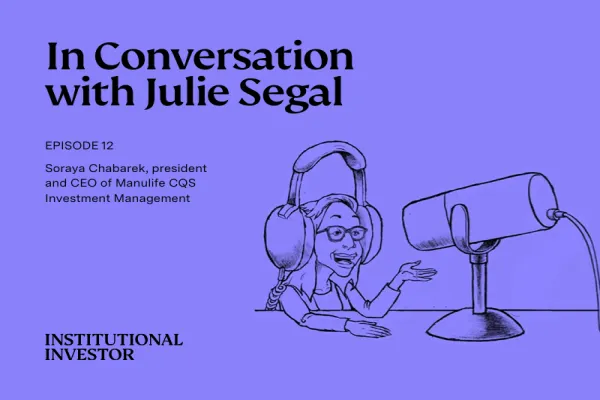Chris Rokos was one of Brevan Howard’s five co-founders in 2002 — he’s the “r” in “Brevan,” a name formed by tossing the initials of the founders together. But Rokos has just filed a new counter-counter claim against the London hedge fund in his battle overturn a five-year non-compete clause that says he can’t set up a fund of his own. A star trader for Brevan Howard until he left in 2012, Rokos made about $4 billion for the Brevan Howard Master Fund between 2004 and 2012 and can be credited as the source of about 17 percent of the profits during that time, Reuters reports. He has also made a request in court that the firm pay him a share of the profits until 2018. So far that’s less of an issue this year. Although the master fund has never had a losing year, it is down 3.7 percent through July 2014.
___ Standard General, the $1 billion New York-based firm run by Soohyung Kim, an Institutional Investor hedge fund rising star, might be riding to the rescue of RadioShack Corp. The two are in talks about a deal that could help the retail chain avoid a bankruptcy filing, says Bloomberg. In July Standard General, a specialist in distressed companies, provided $25 million in financing to American Apparel.
___ “The Whopper isn’t going anywhere,” Burger King now claims on its Facebook page. Yesterday we reported that the fast food chain had made $203 million in one day for William Ackman’s Pershing Square Capital Management, rising on the news that Burger King had agreed to buy Canadian coffee and donut chain Tim Hortons for $11 billion. The deal, however, was set up to take advantage of tax inversion, the practice in which a U.S. based company buys a foreign company and moves its headquarters to that country to take advantage of a lower corporate tax rate. The news sent American fast-foodies racing to Burger King’s Facebook page with such declarations as “I’ve had my last Whopper” and “… kiss my business goodbye forever.” Burger King’s Facebook post says that Burger King will be a separate company that will keep its headquarters in Miami — but it doesn’t say whether the parent company will reside in Canada. Either way, Ackman’s hedge fund wasn’t gorging on burgers yesterday; the stock had declined by 4.32 percent at the closing bell.
___ Paul Singer, CEO of Elliott Management Corporation, is now counting on friends in high places to get his money back from Argentina. Singer — whom Argentine government officials call a “vulture investor” for his insistence on being paid back in full on his shares in the country’s debt that defaulted in 2001 — has hired the political consulting firm run by former U.S. Secretary of State Madeline Albright to press his case, the New York Post reports.
___ Information technology and healthcare stocks saw the largest growth in new hedge fund buying activity during the second quarter of 2014, according to a new report from the New York investment research firm S&P Capital IQ. Allergan was the top new buy among the largest 10 hedge funds, with $1.43 billion in new positions. Apple saw the second-highest level of new buying activity, with $855 million in new buys. Twenty First Century Fox was most sold position among the 10 largest hedge funds, with $1.26 billion sold off. Verizon and Time Warner were the second and third biggest selloffs, losing $1.06 billion and $992 million respectively.
___ There are 544 large hedge fund advisers with regulatory assets under management of $1.5 billion or more in the United States, according to the Securities and Exchange Commission’s newly-released annual report on the use of data from Form PF. Altogether approximately 8,000 hedge funds filed the form, reporting a total RAUM of $5 trillion. RAUM, however, is always going to be a much larger figure than the traditional net assets under management. The SEC form requires that fund managers tally up their assets by factoring in such categories as leveraged funds, short positions and proprietary accounts belonging to the fund manager. The Managed Funds Association, a hedge fund industry watchdog, says RAUM is useful for expressing the hedge fund industry’s capital markets participation, but AUM is the figure that shows how much investor capital is at risk.





